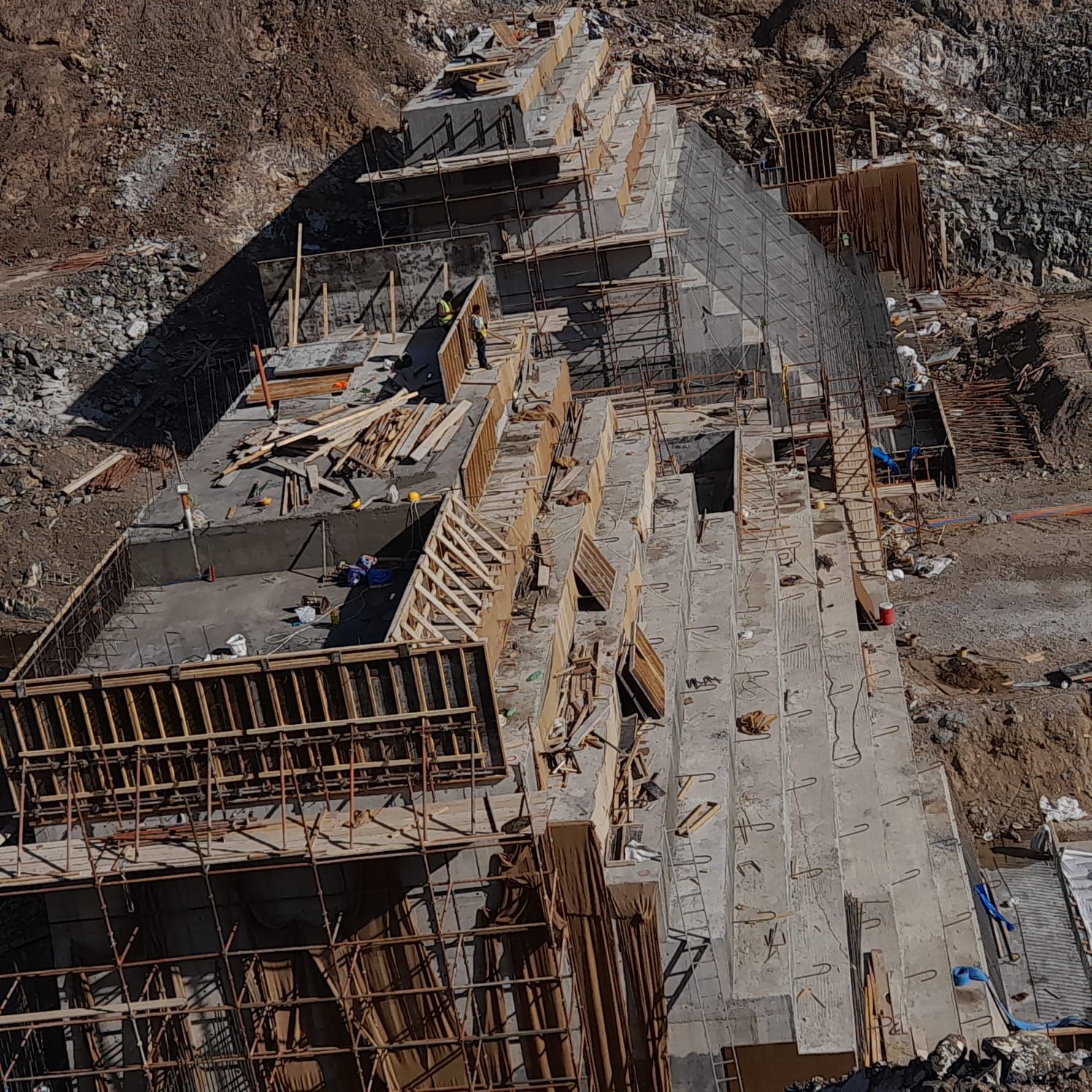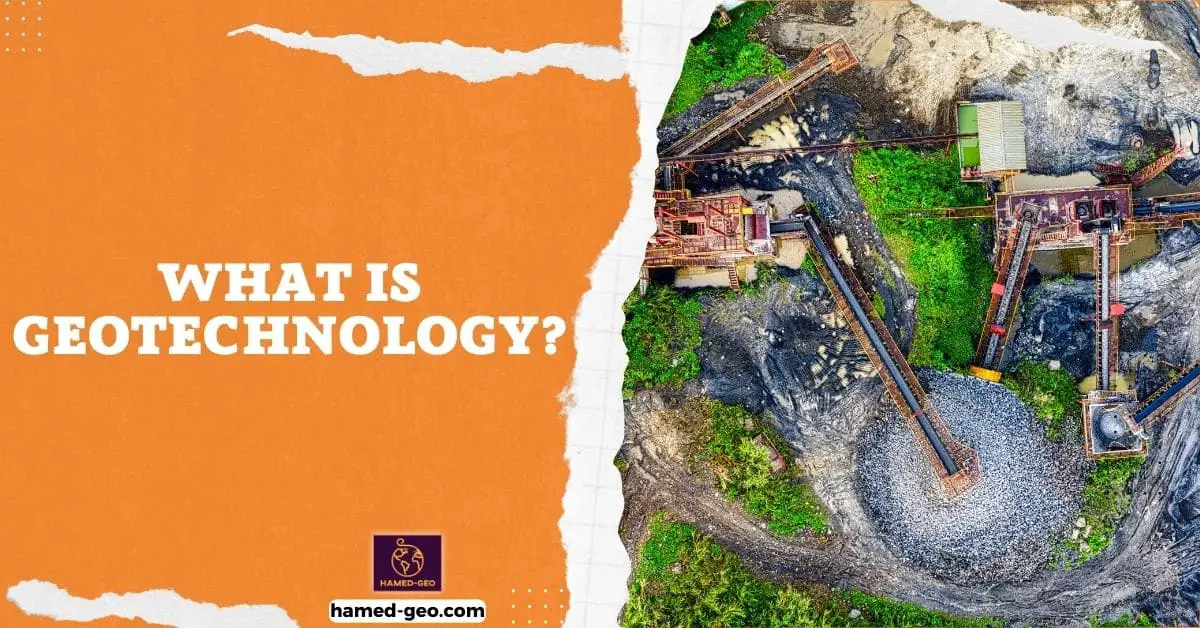All works performed by civil engineers involve the earth and its features, and every successful civil engineering project mainly depends on geology from its planning to its completion. Engineers must understand the nature of the land on which the project will rest. Geology is the study of the earth, the materials that make it, the structure of those materials, and the forces that act upon them and their effects. Understanding geology is a fundamental requirement in university-level civil engineering programs. Geologists thoroughly study the land to support a proposed project to determine its stability. Geologist also examines whether the site is prone to flooding by checking the water patterns.
Civil engineers use geology knowledge to determine rocks for valuable metals, natural gas, groundwater, and oil. Civil engineers carry out projects like soil and rock excavation or imposing loads on earth by constructing structures. The excavated soils can be used as backfill materials where necessary. The excavated rocks may be processed, used as construction material, and used in significant parts of the finished product, such as reservoirs and motorways.
The practicability, outlining and design, the building, costing, and welfare of a project depend on the site’s geological conditions, a situation in extended out-of-town sites, where the land affected by a particular project reclines for several miles across the comparative greenfield ground. Examples are highways and railway tunnels. In small projects that involve the reconstruction of a bounded site, there will be less need for the geological knowledge of the engineer or advice, but they are always significant. In such cases, enough preliminary such as boring and testing samples should be done for site investigation. Site surveying is an essential task for a civil engineer to complete before the commencement of any project.
Points above and below the earth’s surface are vital points that need surveying by a civil engineer. They require geological surveying skills and tools, e.g., to determine how points in blueprints can be transferred to the ground; civil engineers must measure distance, elevation, and orientation directly and indirectly.
Overall, surveying and site investigation follows several geological processes:
- Collect preliminary information from already existing data about the site.
- Completing a geological survey of the site.
- Compiling all data from the survey about geology underneath the surface to form hypotheses.
- Conduct drilling and boring projects to authenticate geological hypotheses.
- Conducting tests on soils and rocks from the proposed site to examine where the land is suitable for the project.
The history of the earth, life, and physical processes on the surface and in the world’s crust defines geology. Civil engineers must know the history of particular ground and processes taking place on the surface of in crust, a process that may need more geology knowledge. Geology has several fields relevant to civil engineering, as described below.
Geophysics and its importance to civil engineering

Geophysics deals with natural science that deals with physical processes and properties of the earth and its environmental surroundings and applying numeric methods for their research. Geophysics and civil engineering have gone hand to hand for decades. For geotechnical projects, civil engineering depends so much on geophysical methods to examine the often and composite and alternating subsurface as a base for complex civil engineering structures such as highways, bridges, and dams. The importance of geophysics in civil engineering includes the following:
1- Geotechnical applications
In many geotechnical projects, geophysical methods play a significant role as the primary goal to achieve is the same as in other geophysical fields such as seismology and exploration; define the groundwater, soil, and rocks. In geotechnical site investigations, shear modulus, porosity, bulk density, lithology, weathering, and patterns of fracturing are mechanical properties of soil and rock that needs characterization.
Geophysical methods help civil engineers detect groundwater and bedrock levels, portray different subsurface materials, or even detect materials that cannot support the superimposed weight. Mechanical properties of materials help civil engineers during the standard calculations for earthworks, foundation design, and earthquake and landslide protection.
2- Geophysical methods in structural investigation
Ground penetrating radar (GPR) is the most popular method copied from geophysics to civil engineering as it grants to discover small features in construction. GPR allows the detection of rebar and other elements at depths greater than those that can be accessed by conventional eddy current instruments and provides an effective detection rate for metallic objects that ultrasonic methods. In civil engineering, reinforced concrete elements can be inspected using advanced technology devices, antennas, and software and are all developed using geophysical methods.
Petrology and its importance to civil engineering

Petrology studies rocks, their formation, physical properties, chemical composition, and their uses in all civil engineering activities. Various rock formations, physical appearance, and chemical compositions determine different benefits in engineering. In the civil engineering field, petrology plays an essential role because it gives the proper notion and insightful basis for describing the physical content of rocks. The study of mineral and chemical composition, texture, and structure provides all the required details about the chemical composition, color, strength, and durability. These essential characteristics of rocks raise anxiety for a civil engineer to judiciously assess how suitable the rocks occurring at the proposed project site is for the needed purpose. It is important because different types of stones are usable for other specified purposes, and there is no rock ideal for every kind of construction purpose.
A good example is granite rock, which is hard, durable, competent, and free from weak planes. It is known to be suitable for laying foundations; Shahabad and Cuddapah are used in roofing and flooring, marble being attractive and soft are, employed in face work, decoration, sculptural, and statue doing work. Sandstones are used to dress construction walls. In civil engineering, different types of rocks suit other usages by their particular physical characteristics. Every detail of rocks must be known to ensure the best exploitation of available stones in engineering sites.
Mineralogy and its importance to civil engineering
Mineralogy studies physical and chemical properties and the classification of minerals. Different minerals have different inherent values hence other usages in engineering. However, from the civil engineering point of view, rock-forming minerals are important because engineers need to identify the characteristics of rocks. It enables them to classify different rocks for different purposes, i.e., concrete aggregate, floorings, foundation rock, roofing minerals, road metal, or decorative materials. Thus, knowledge of the minerals that form rocks helps engineers assess rocks’ properties, such as physical strength, appearance, and durability. The scarcity of economic minerals makes them not influence the characteristics of rocks and hence extraneous from a civil engineering point of view.
Structural geology and its importance to civil engineering
Structural geology examines the structure of soils, rocks, and geotechnics. It explains the origin and formation of deposits and the present topographical model of the earth’s surface. It also deals explicitly with the structure of the earth’s crust in a specified place. It analyses tectonic forces, boundaries, and uplifts of foliation. Land deformation in the tectonic plate is well analyzed under structural geology. Structural geology is a required field in civil engineering since it is the base of construction projects for roads, buildings, dams, bridges, railways, etc., and it also serves as a tool for anticipation and moderation in the regulation of geological risks. In tunnel or mining excavation, structural geology helps civil engineers know the quality of rocks and analyze if the rocks can support the activities it is exposed to and remains stable to eliminate collapse risk.
Geomorphology and its importance to civil engineering
Geomorphology covers the process of creating landforms by shaping the earth’s surface. The earth’s surface is not stagnant, and changes in landforms can cause measurable harm to people and cause property damage and natural resource utilization. For some time, geomorphology has offered support in several fields associated with civil engineering. It has enabled engineers to evaluate ground conditions near the surface for designing and building man-made features. Analyzing the process underneath the surface helps estimate the risks of the construction of civil engineering projects. Geomorphology also allows engineers to determine the available resources for building and assess the effect of civil engineering projects on a particular environment.
Economic geology and its importance to civil engineering
Economic geology links mining and civil engineering activities. It entails applying geological principles when studying soils, rocks, and groundwater. Economic geology with help in the civil engineering field when panning, designing, locating, constructing, operating, and maintaining engineering structures.
Environmental geology and its importance to civil engineering
Environmental geology involves collecting and analyzing geological data and how they can be applied to problems caused by living being use of the surrounding. For example, urban geology helps the civil engineer to know areas that can bear large buildings and those with limited loads. It also deals with cities’ environmental problems. Factors that influence how people use land are the major venture in ecological geology, and this help the civil engineering field to know where the different building will be located, i.e., malls, recreational places, market, and the kind of structures to construct in every area.
In conclusion, engineering geology plays a significant role in the civil engineering field both from a practical and theoretical point of view. Petrology will help the civil engineer decide how to use different rocks in construction. Structural geology will enable engineers to calculate the loading imposed on specific ground. Geophysics will help the field of civil engineering to know what is under the earth’s surface using GPR. It is visible that geology has so much importance in the civil engineering field, so it should be made mandatory when studying civil engineering.
References
1-Ologe, O., and A. I. Augie. “Geophysical Investigation for Pre-Engineering Construction Works in Part of Ilorin, Northcentral Nigeria.” International Journal of Geological and Environmental Engineering 14.11 (2020): 341-347.
2-Kesavulu, N. Chenna. Textbook of Engineering Geology. Macmillan India, 2009.
3-Prakash, Satya, et al. “Importance of geology in construction and prevent the hazards.” Libr. Adv. Appl. Sci 6 (2015): 75-80.
4-Culshaw, Martin G., Helen J. Reeves, and Michael S. Rosenbaum. “Two hundred years of engineering geology.” Quarterly Journal of Engineering Geology and Hydrogeology 41.2 (2008): 137-142.
5-Bell, F. G., J. C. Cripps, and M. G. Culshaw. “The significance of engineering geology to construction.” Geological Society, London, Engineering Geology Special Publications 10.1 (1995): 3-29.




[…] https://hamed-geo.com/importance-of-geology-in-civil-engineering/Geology is the study of the Earth, the origin of the word from Greek Geo means “the Earth” and ology means “the study of”. Geology in scientific definition is the study the interaction between four elements of the Earth system, the hydrosphere, the atmosphere, the geosphere, and biosphere. However, geology also includes the study of the moons and planets in our solar system. […]